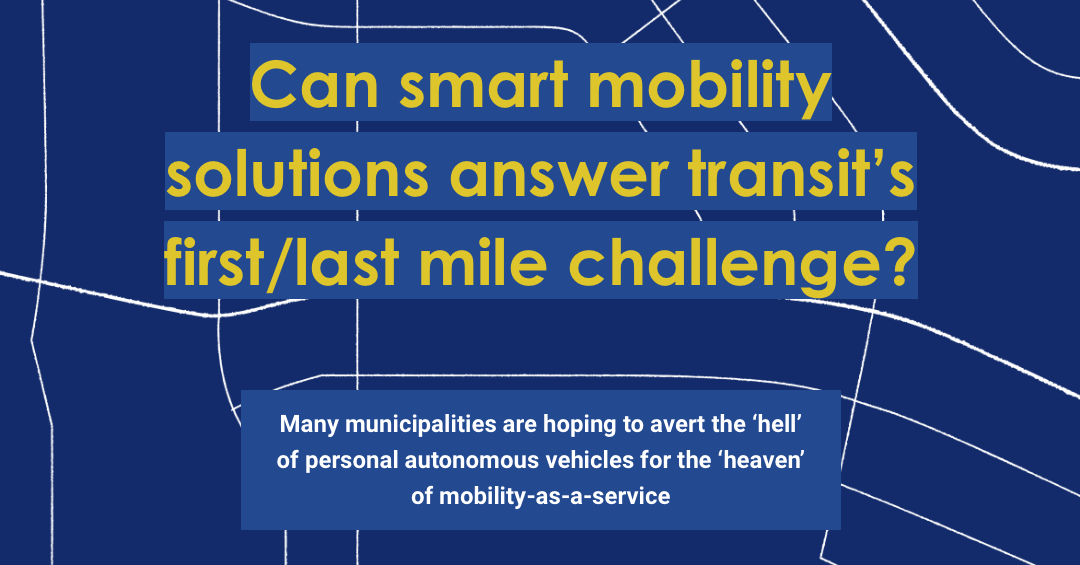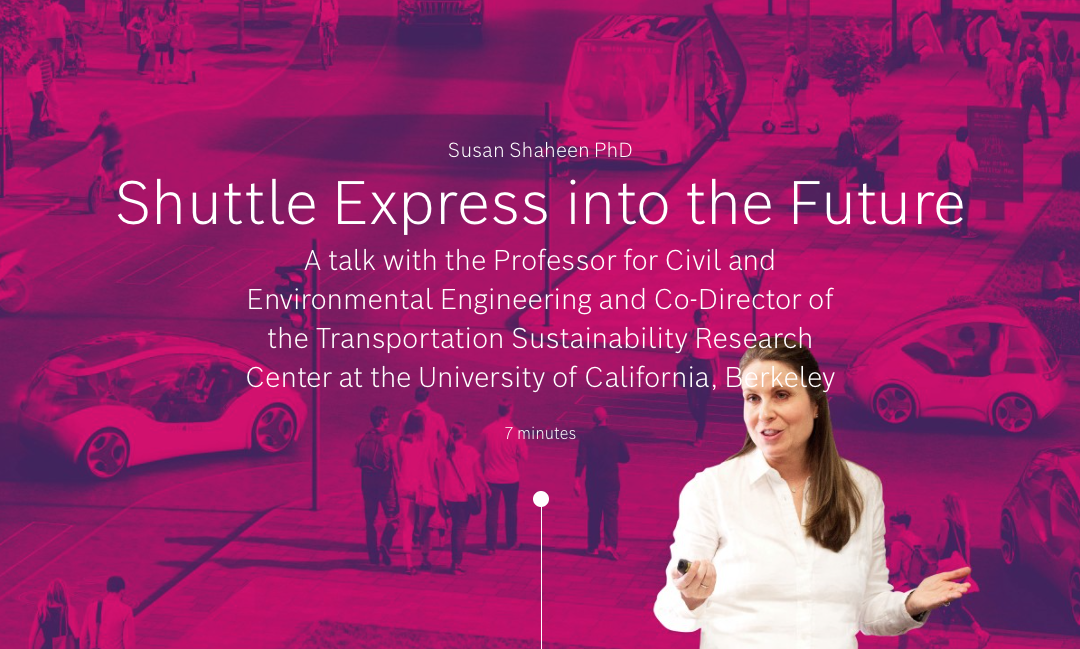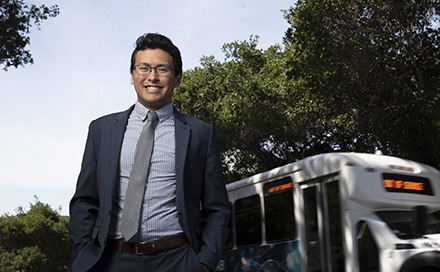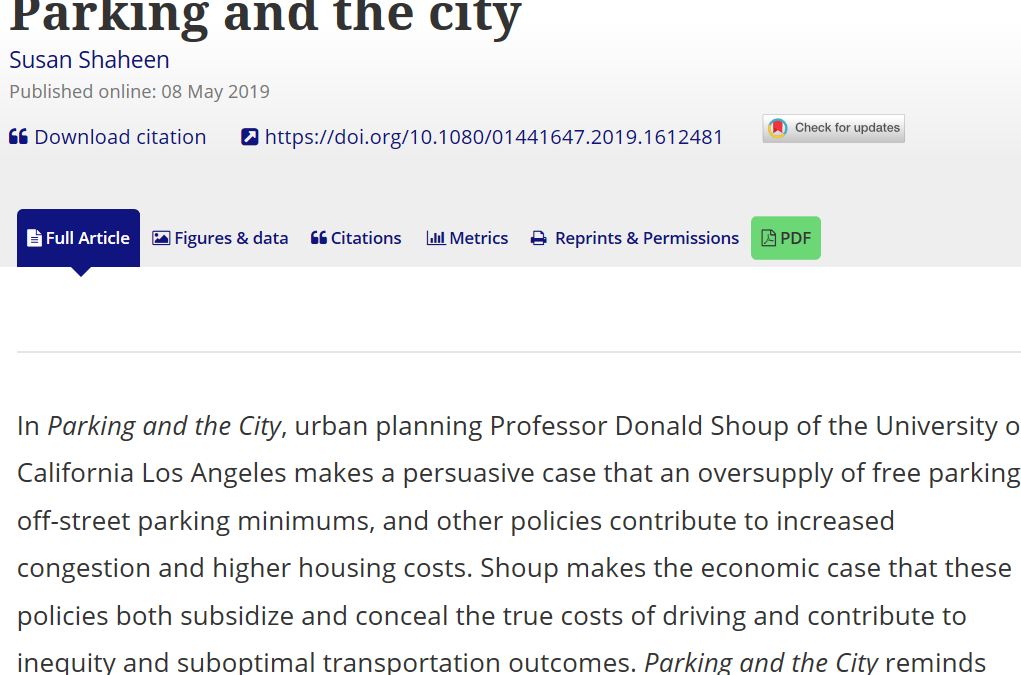
by Innovative Mobility Research | Jul 3, 2019 |
The Globe and Mail July 3, 2019 In a business park on the northwest side of Denver, an autonomous all-electric bus has been shuttling commuters from the 61st and Pena commuter rail station to the building that houses the offices of Panasonic and EasyMile. The first of its kind in Colorado, the shuttle moves people from 10 a.m. to 6 p.m., Monday to Friday, as part of a six-month pilot project between the Regional Transportation District (RTD), Denver’s transit agency; EasyMile, a driverless mobility company; and many other project partners. RTD is evaluating the shuttle’s reliability and availability. “RTD wanted to see how easily and effectively it could be integrated into the overall service,” says Lauren Isaac, EasyMile’s director of business initiatives…. Read the full article here: Can smart mobility solutions answer transit’s first/last mile...

by Innovative Mobility Research | Jun 28, 2019 |
Bosch June 14, 2019 Does the future of our everyday mobility lie in self-driving shuttle busses? Professor Susan Shaheen has looked into how this new form of mobility can be organized equitably for everybody. She says the transition on our roads has already begun… Read the full article here: Shuttle Express into the...

by Innovative Mobility Research | Jun 20, 2019 |
Linda Vu June 19, 2019 In the past few years, devastating California wildfires have forced more than half a million people to evacuate their homes. In many cases, local government agencies did not have enough resources to transport and shelter all of the evacuees, especially vulnerable populations like the elderly and disabled. Meanwhile those who could afford it, secured hotel rooms or Airbnbs and evacuated with their cars. Now, researchers at UC Berkeley are suggesting that emergency management agencies and local relief organizations partner with companies in the sharing economy — including Airbnb, Lyft and Uber — and private citizens, to ensure equity in evacuations. They described their ideas in a first-of-its-kind policy brief published today. “Private sharing economy companies have already acted in California disasters and I’ve found that private citizens are moderately willing to share their own resources in disaster relief situations, especially transportation,” said Stephen Wong, a transportation engineering Ph.D. candidate in UC Berkeley’s Transportation Sustainability Research Center. “Local organizations and emergency response agencies should… Read the full article here: How can companies like Airbnb, Lyft or Uber help in...

by Innovative Mobility Research | Jun 4, 2019 |
ITS Berkeley June 4, 2019 Congratulations to Transportation Sustainability Research Center Co-Director and Civil and Environmental Engineering professor Susan Shaheen, Professor Emeritus of City and Regional Planning Robert Cervero, and former graduate students Lisa Rayle (Data Science at Facebook), Danielle Dai (City of Oakland Mobility Programs Manager), and Nelson Chan (Interaction Designer at Internet Brands/WebMD) on earning the Transport Policy Prize from the World Conference on Transportation Research (WCTR). The Transport Policy Prize for the most influential Paper is in recognition of the most influential paper published in the Transport Policy Journal during the last three years preceding the conference, and is only awarded every three years. It is chosen by a Sub-Committee of WCTRS comprised of all the editors of Transport Policy and the Chair of the WCTRS Prize Committee. The Editor in Chief serves as chairperson for the Sub-Committee. The journal article from article in Transport Policy (published in 2016), “Just a Better Taxi? A Survey-Based Comparison of Taxis, Transit, and Ridesourcing Services in San Francisco” presents…. Read the full article here: TSRC Study Earns Transport Policy...

by Innovative Mobility Research | May 9, 2019 |
Susan Shaheen May 8, 2019 Book Review In Parking and the City, urban planning Professor Donald Shoup of the University of California, Los Angeles makes a persuasive case that an oversupply of free parking, off-street parking minimums, and other policies contribute to increased congestion and higher housing costs. Shoup makes the economic case that these policies both subsidize and conceal the true costs of driving and contribute to inequity and suboptimal transportation outcomes. Parking and the City reminds policymakers, practitioners, and the public that parking has a cost. Free parking distorts travel behaviour and economic decisions, penalizes sustainable choices, and contributes to lower wages (by redirecting wage income into parking). Because the true costs of parking are concealed, travellers have an incentive to drive and thereby contribute to congestion and emissions. Shoup makes a compelling argument to allow pricing and the market economy to commodify parking based on price, location, and convenience compared to other modes. In addition to an over abundance of parking, Parking and the City argues that parking minimums result in a number of additional externalities on housing affordability, historic preservation, the environment, walkability, and local tax revenue. This edited volume…. Read the full book review here:...






